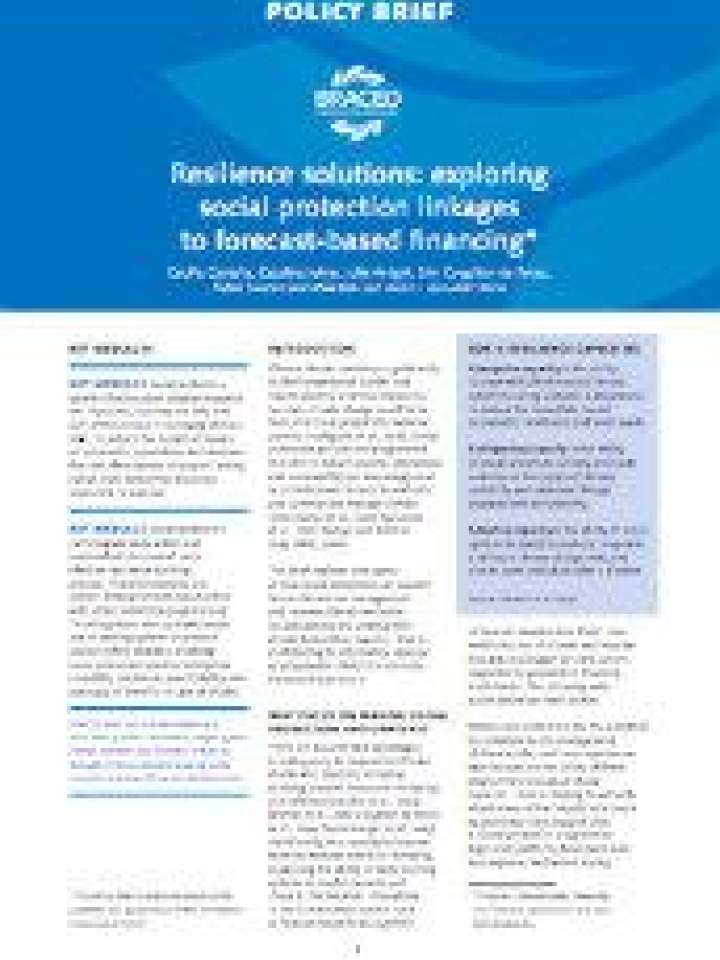Resilience solutions: exploring social protection linkages to forecast-based financing
This policy brief outlines one aspect of how social protection can support better climate risk management and increase climate resilience by anticipating and dealing with shocks before they happen. It explores linking forecast-based action with social protection programming. This integration aims to make better use of existing systems to protect people before disasters, enabling social protection systems to improve scalability, timeliness, predictability and adequacy of benefits in case of shocks.
Climate shocks contribute significantly to the humanitarian burden and lead to poverty and food insecurity; by 2030, climate change could force tens of millions people into extreme poverty. Social protection policies and programmes that aim to reduce poverty, deprivation and vulnerability are increasingly seen as an instrument to help households and communities manage climate risks.
Explore further
